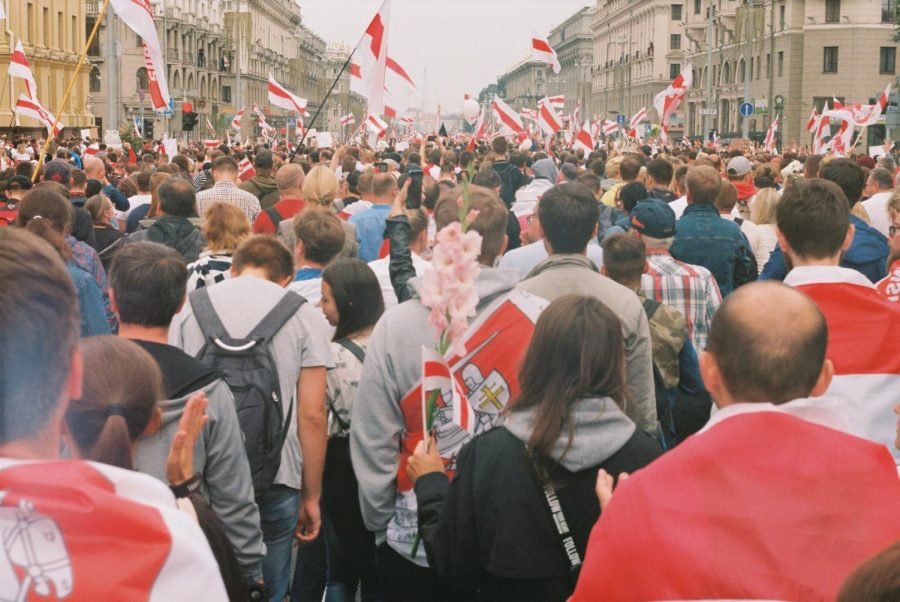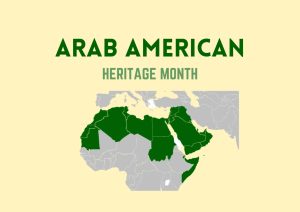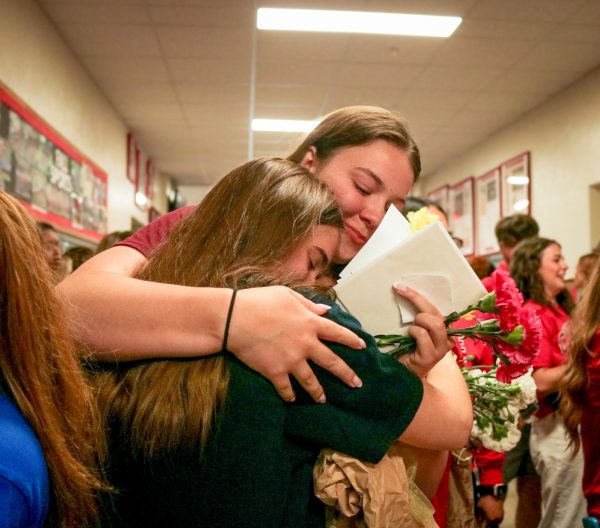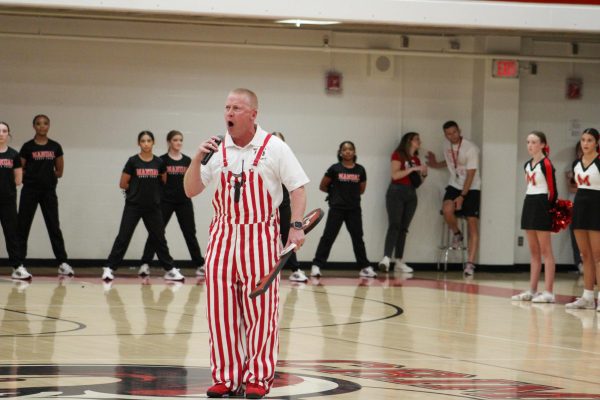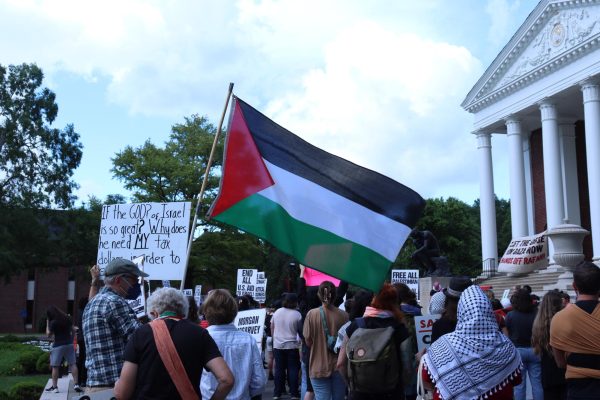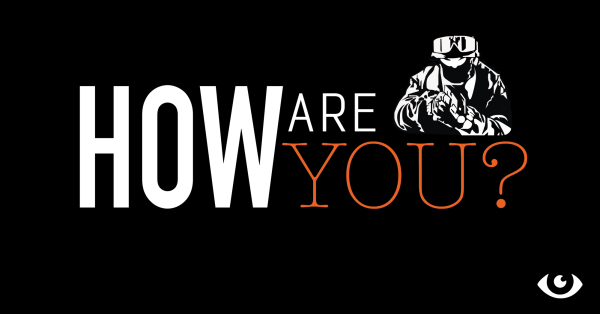Belarus: the little-known country aiding Russia’s expansion
Protests like the one above broke out all over Belarus following fraudulent elections in 2020. Photo by Andrew Keymaster on Unsplash
March 9, 2022
Belarus is an Eastern European country with around 9 million people living within its borders, or around the population of London, England. It is around 40 percent forest, with around 2 million of those people concentrated in the capital of Minsk. It is best known for its love of bison, and being the second potato capital of the world (the first being Ireland of course). So what does a tiny minnow like Belarus have to do with an ongoing war?
Alexander Lukashenko has been the head of state for Belarus since June of 1994, an almost 28-year long reign of turmoil. While his official title is one of a president, Lukashenko has slowly transformed into a less than democratic leader. Such accusations have intensified against the politician ever since the Belarusian national elections held in August of 2020. These elections are widely believed to be fraudulent, as Lukashenko was able to amass over 80 percent of the total vote, despite having little public support for a continuation of his time in office.
These results sparked mass protests within the country, with upwards of 200,000 people taking to the streets at a time. The Belarusian government responded with mass aggression, arresting over 33,000 people during the course of the events, as well as deploying water cannons, tear gas and other harmful deterrents.
Such a blatant disregard for human rights led to mass sanctions from all the major European powers, except for Russia. Since October 2020, the EU has imposed five packages of sanctions in connection with the situation in Belarus, targeting a total of 183 individuals and 26 entities. Lacking financial and political support, Lukashenko turned to the one ally he knew he could rely on, Russia. Vladimir Putin was the only major world leader to publicly back Lukashenko’s authenticity following the 2020 elections. His country also is Belarus’ main energy provider, as the Russian government grants Belarus massive subsidies on oil and gas.
Putin gives the dictatorial Belarusian government as well as funding to keep afloat, so it’s no surprise that they decide to back him when he invades Ukraine. Before the initial onset of the war, Russia sent around 30,000 troops into Minsk for prolonged “training exercises”. Despite the time for the exercises supposedly being up, there are reports of many of these soldiers flooding into Ukraine from the opposing side, forcing the country to fight a two-sided war.
On February 27, 2022, the same day that Putin put his nuclear forces on high alert, Lukashenko held a referendum on nuclear power. In what has been widely claimed to be a fraudulent vote, the anti-nuclear stipulations in the Belarus constitution were removed, opening up the possibility for Putin to move his nuclear weapons into Belarusian territory. Lukashenko already has offered to host Russian nuclear weapons if NATO moves nuclear weapons from Germany to Eastern Europe.
With the potential for an increase in volatility in Ukraine, Belarus has been sanctioned even more by the U.S and other global powers. The U.S had already cut off access to the Ministry of Finance and national bank within the country, but who’s to say this will stop their support for the Kremlin at all? Only time will tell.


